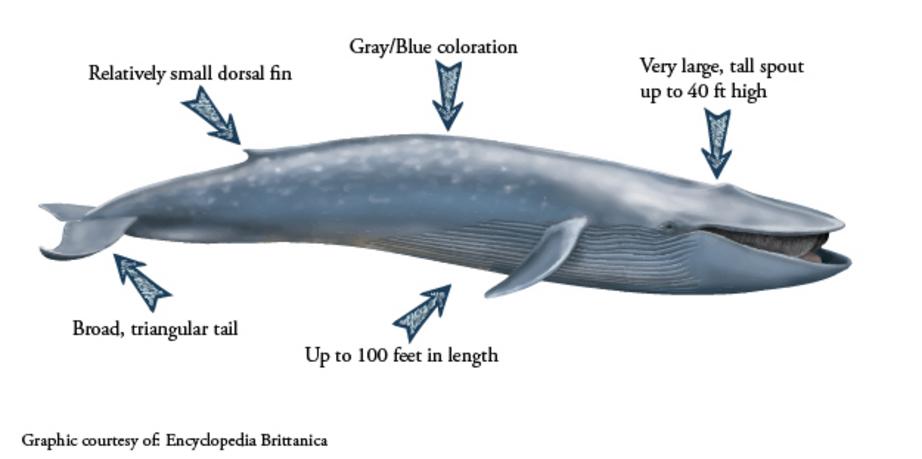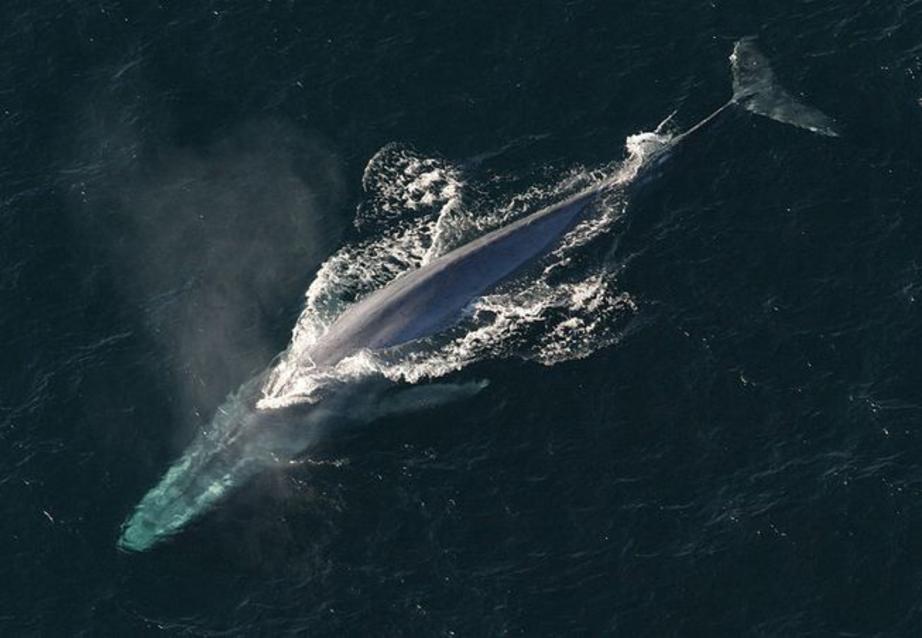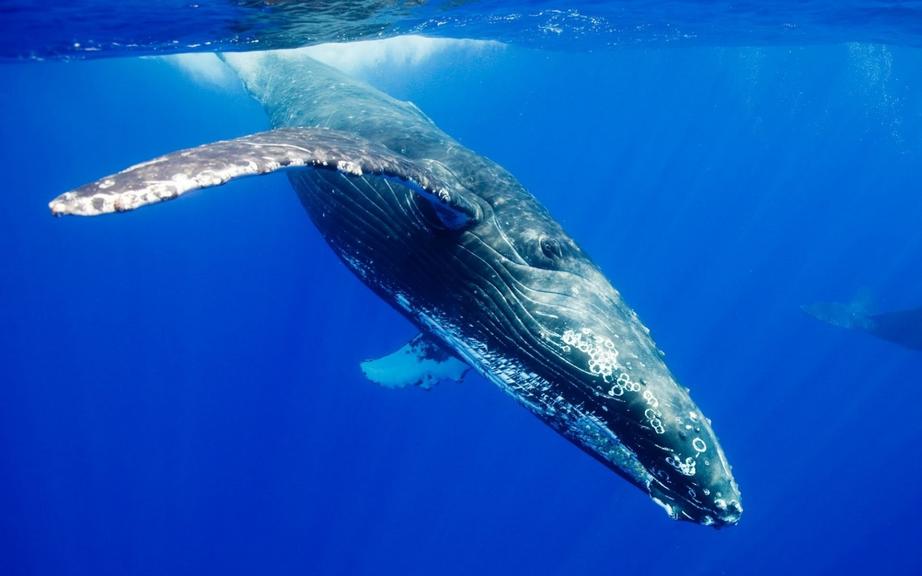Why are blue whales suddenly changing the frequency of their songs?
Researchers suspect it could be a coping mechanism for human noise pollution.
Blue whales are the largest animal ever known to have existed, and they have some mighty calls that can be heard from up to 500 miles away. But researchers have been noticing something strange going on with these majestic sea beasts: Their songs seem to be mysteriously lowering in frequency over the last several years, reports Phys.org.

This is surprising because the frequency of their calls was previously believed to be fixed depending on the size of the animal. That's because they use massive chambers in their respiratory system to generate sounds, and the size of the chamber ought to determine the frequency of sound that resonates from it. But if their calls are universally getting lower without any reason to believe the animals are also uniformly changing sizes, something else must be going on.

Blue whales are mysteriously changing the frequency of their calls. (Photo: NOAA)
"Our study shows that blue whales in particular – and perhaps other baleen whales in general – may be making their harmonious sounds in a much different way than previously thought," said Robert Dziak, lead author on the study.

Dziak and colleagues were therefore prompted to look for another factor in how these enormous creatures generate their calls. So, they created a model that replicates the types of sounds that blue whales make, and found that by toggling the rate at which air is passed over the vocal cords, the calls could be more accurately mimicked. It's an entirely new way of thinking about whale songs.
"We show that blue whales can make these low frequency sounds, and even change frequency in the middle of their call, by pulsing air through their vocal cords," explained Dziak.
 en.wikipedia.org
en.wikipedia.org
This also implies that the frequency by which blue whales communicate could be determined by a choice made by the animals themselves. But why would blue whales everywhere be collectively choosing to lower their call frequency? A number of theories have been forwarded, but scientists suspect it might have something to do with increasing noise in the ocean caused by human activity.
"We conducted a year-long study of sound off the Oregon Coast and at times it can be really noisy out there," said Joe Haxel, an Oregon State University acoustics specialist. "In addition to vibrant natural sounds – especially waves breaking on the beach – a few long-term studies have documented a substantial increase in ocean noise over several decades from expanding container shipping traffic.

"It may be possible the whales are modulating their vocalization frequency in response to an increase in human-generated noise. They are essentially trying to find a radio channel that has less static to communicate in."
If this is indeed what the whales are doing, it's a remarkable adaptation, but also an alarming one. We are only beginning to understand how human-generated sounds impact ocean ecosystems. Whales might have the ability to adapt-- at least to a point-- but that might not be the case for so many other ocean critters that also communicate via sound.
The study was published in the journal Scientific Reports.
For the rest of this article please go to source link below.

